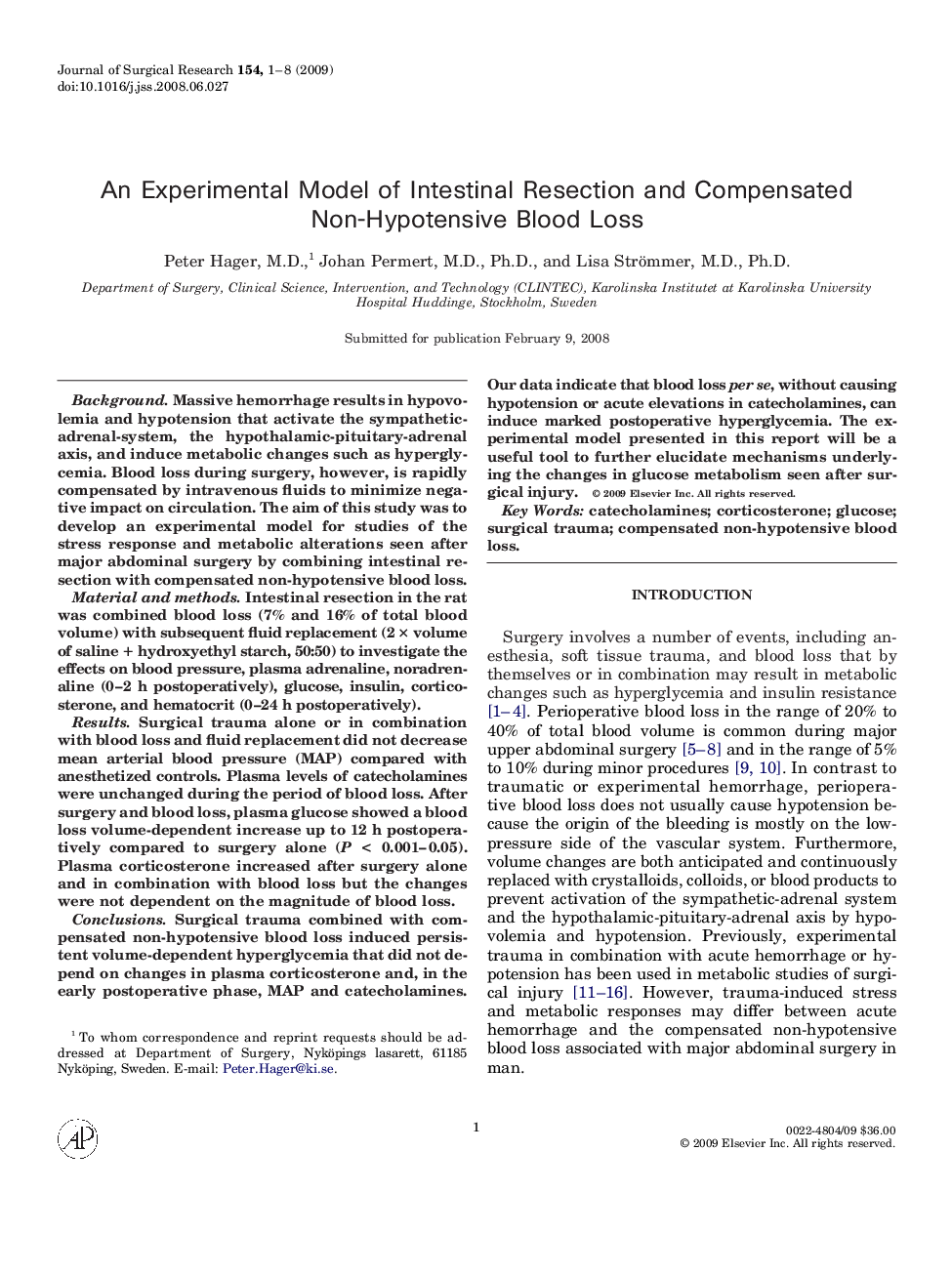| کد مقاله | کد نشریه | سال انتشار | مقاله انگلیسی | نسخه تمام متن |
|---|---|---|---|---|
| 4303808 | 1288487 | 2009 | 8 صفحه PDF | دانلود رایگان |

BackgroundMassive hemorrhage results in hypovolemia and hypotension that activate the sympathetic-adrenal-system, the hypothalamic-pituitary-adrenal axis, and induce metabolic changes such as hyperglycemia. Blood loss during surgery, however, is rapidly compensated by intravenous fluids to minimize negative impact on circulation. The aim of this study was to develop an experimental model for studies of the stress response and metabolic alterations seen after major abdominal surgery by combining intestinal resection with compensated non-hypotensive blood loss.Material and methodsIntestinal resection in the rat was combined blood loss (7% and 16% of total blood volume) with subsequent fluid replacement (2 × volume of saline + hydroxyethyl starch, 50:50) to investigate the effects on blood pressure, plasma adrenaline, noradrenaline (0–2 h postoperatively), glucose, insulin, corticosterone, and hematocrit (0–24 h postoperatively).ResultsSurgical trauma alone or in combination with blood loss and fluid replacement did not decrease mean arterial blood pressure (MAP) compared with anesthetized controls. Plasma levels of catecholamines were unchanged during the period of blood loss. After surgery and blood loss, plasma glucose showed a blood loss volume-dependent increase up to 12 h postoperatively compared to surgery alone (P < 0.001–0.05). Plasma corticosterone increased after surgery alone and in combination with blood loss but the changes were not dependent on the magnitude of blood loss.ConclusionsSurgical trauma combined with compensated non-hypotensive blood loss induced persistent volume-dependent hyperglycemia that did not depend on changes in plasma corticosterone and, in the early postoperative phase, MAP and catecholamines. Our data indicate that blood loss per se, without causing hypotension or acute elevations in catecholamines, can induce marked postoperative hyperglycemia. The experimental model presented in this report will be a useful tool to further elucidate mechanisms underlying the changes in glucose metabolism seen after surgical injury.
Journal: Journal of Surgical Research - Volume 154, Issue 1, 1 June 2009, Pages 1–8